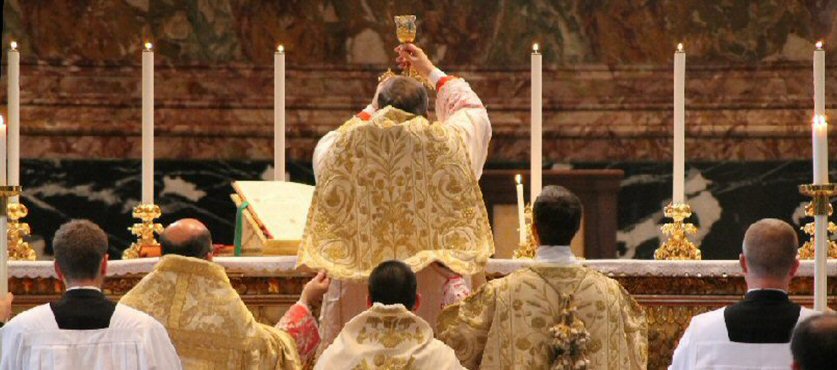Minority within Franciscan Friars of the Immaculate wanted to scrap the Old Mass
Fr. Alessandro Apollonio
“Vatican Insider” interviews the Procurator General of the Franciscan Friars of the Immaculate, the Institute the Holy See recently placed under the supervision of a commissioner
andrea tornielli vatican city
The decision to appoint a commissioner to oversee the Congregation of Franciscan Friars of the Immaculate and the need for the order to obtain authorisation before it can celebrate Mass according to the Old Rite has sparked a heated debate. Traditionalist blogs and websites have voiced disagreements over this. Vatican spokesman Fr. Federico Lombardi says the decision does not go against Benedict XVI’s Motu Proprio but is exclusively to do with existing tensions within the Institute. Vatican Insider asked Fr. Alessandro Apollonio, the Procurator General of the Franciscan Friars of the Immaculate to answer some questions regarding the decision.
Why did the Vatican decide to send an apostolic visitor to your Institute? “Because a few of the friars who don’t agree with the founding Father and Minister general’s style asked for it. They also disagree with his eagerness to promote the Vetus Ordo within the Institute, alongside the Novus Ordo, in accordance with the Motu Proprio Summorum Pontificum and the Instruction Universae Ecclesiae.”
To what extent did the issue of the use of the old missal influence the decision to send an apostolic visitor?
“It had a big influence on the decision because the group of friars I mentioned before accused the founding Father of imposing the Vetus Ordo on the whole Institute. Although the accusation is completely unfounded, people believed it and our attempts to prove it was false proved futile. This false accusation has spread like an oil slick, with various newspapers and news agencies passing it on. This has seriously harmed the good name of the Institute’s founding Father.”
Traditionalist blogs and websites have reacted to this news - and to the decision that prior authorisation will have to be obtained before the Institute can celebrate Mass according to the Old Rite - by saying that these decisions disavow Benedict XVI’s Motu Proprio. Do you agree with this interpretation? What can you say about these decisions?
“Fr. Lombardi has clearly stated that the decisions taken regarding our Institute are not a disavowal of the Motu Proprio. However, we are still waiting for an authentic interpretation of the Holy See’s liturgical provisions for our Institute. For example, it is still unclear who exactly the “competent authorities” who will give the aforementioned authorization, are. Will it be the commissioner, the Congregation for Religious, the Pontifical Commission Ecclesia Dei, the local ordinary, one of these or all of these? We hope this is just a temporary disciplinary provision and that we will soon be given authorisation to celebrate according to the Vetus Ordo also, as we have always done. Without all the current restrictions which – unless a better reason can be given – deprive us of the universal right granted to us in the Motu Proprio Summorum Pontificum and the Instruction Universae Ecclesiae.”
Have any members of your Institute played a role in spreading the above interpretation? “No.”
When you have asked for clarifications regarding some of our articles, you have always stressed that you did not only use the old missal and that all decisions were taken bearing in mind the provisions of the Motu Proprio. Is it true that before the apostolic visit, the “Ecclesia Dei” commission had cautioned the Franciscan Friars of the Immaculate to be prudent in their use of the old missal?
“Yes, we tried to be as prudent and discreet as possible in exercising our special right which gives the General Chapter in session “supreme authority in the Institute”, in accordance with the Constitutions (§ 81). The last General Chapter held in 2008, established that the General Council (that is, Fr. Stefano M. Manelli and his five advisors) was to draft a protocol for the Vetus Ordo to be introduced in our communities. This was done in the form of a letter sent on 21 November 2011. The Pontifical Commission “Ecclesia Dei” considered this letter carefully, taking account Benedict XVI’s thinking, but this official judgement was not taken into consideration during the developments in our case. We do not understand why and are greatly saddened by this. We entrust our cause to Our Lady Queen of the Seraphic Order.”
